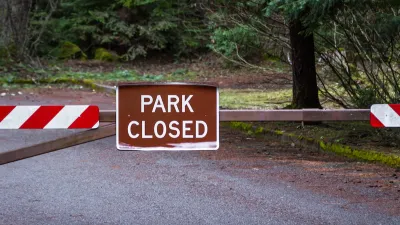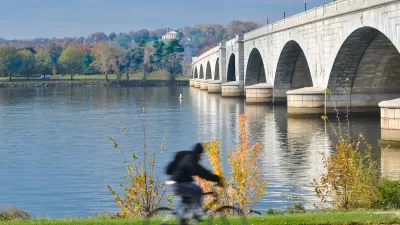A proposed rebate on electric bikes in the District would be more cost-effective in reducing gasoline miles driven than electric car subsidies thanks to the higher elasticity of e-bike demand.

According to an article by David Edmondson in Greater Greater Washington, a proposed $400 to $1,200 e-bike subsidy in Washington, D.C. “packs the most pollution-fighting power” compared to other plans to promote the adoption of zero-emission transportation, bringing the biggest return on investment for reducing gasoline miles driven.
As Edmondson explains, this has to do with the economic concept of elasticity. “[Zero-emission vehicles] are a lot more expensive than e-bikes and, therefore, it takes a lot of money to meaningfully lower the cost of a ZEV compared to an e-bike.” Edmondson used a Canadian model to predict e-bike sales under the new subsidy, predicting a rise of 15 percent in annual sales. “Remarkably, 44% of those sales would go to incentivized buyers who would not have otherwise purchased an e-bike,” Edmondson notes. Most electric car subsidies, on the other hand, tend to be used by people who would already buy electric or hybrid cars.
While they can’t replace all vehicle trips, e-bikes can have a significant impact on gasoline miles. “When a household buys an e-bike, their driving (as measured by vehicle miles traveled, or VMT) decreases by more than a third,” Edmondson found. “When that is taken into consideration, an e-bike subsidy is 2.9 times more effective per dollar at displacing gasoline miles than a ZEV subsidy.”
Edmondson points out the added benefits of e-bikes, such as better health, easier charging, requiring fewer resources for batteries and putting less strain on city streets, and reduced safety risks for pedestrians and other road users.
FULL STORY: Analysis: E-bike subsidies are more cost-effective than EV subsidies

Alabama: Trump Terminates Settlements for Black Communities Harmed By Raw Sewage
Trump deemed the landmark civil rights agreement “illegal DEI and environmental justice policy.”

Planetizen Federal Action Tracker
A weekly monitor of how Trump’s orders and actions are impacting planners and planning in America.

Why Should We Subsidize Public Transportation?
Many public transit agencies face financial stress due to rising costs, declining fare revenue, and declining subsidies. Transit advocates must provide a strong business case for increasing public transit funding.

Understanding Road Diets
An explainer from Momentum highlights the advantages of reducing vehicle lanes in favor of more bike, transit, and pedestrian infrastructure.

New California Law Regulates Warehouse Pollution
A new law tightens building and emissions regulations for large distribution warehouses to mitigate air pollution and traffic in surrounding communities.

Phoenix Announces Opening Date for Light Rail Extension
The South Central extension will connect South Phoenix to downtown and other major hubs starting on June 7.
Urban Design for Planners 1: Software Tools
This six-course series explores essential urban design concepts using open source software and equips planners with the tools they need to participate fully in the urban design process.
Planning for Universal Design
Learn the tools for implementing Universal Design in planning regulations.
Caltrans
Smith Gee Studio
Institute for Housing and Urban Development Studies (IHS)
City of Grandview
Harvard GSD Executive Education
Toledo-Lucas County Plan Commissions
Salt Lake City
NYU Wagner Graduate School of Public Service





























